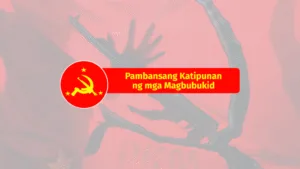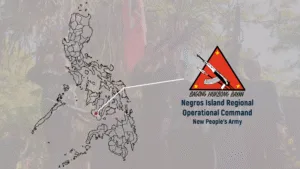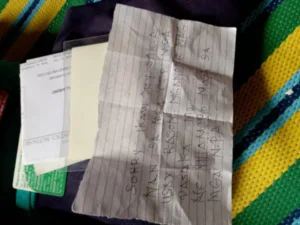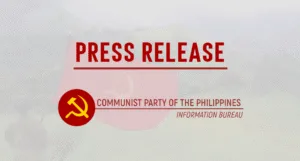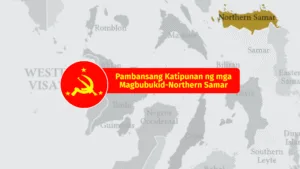By Professor JOSE MARIA SISON
NDFP Chief Political Consultant
To be exact, the court decision is to allow the Dutch Public Prosecution Office to continue the investigation within the year for the purpose of filing or dropping the charge ultimately… At the same time, the court decision acknowledges that so far there is no prima facie or incriminating evidence against me. The District Court of The Hague has affirmed my position that since the examining judge (rechter-commissaris) decided to close the preliminary investigation on November 2007 the prosecution has not turned up any evidence to overturn the decision of the Court of Appeal on 3 October 2007 declaring that there is no prima facie evidence against me.
The Agence France Presse issued a news report on 5 June 2008 which states: “A Dutch court (i.e. District Court of The Hague) gave prosecutors the go-ahead Thursday to pursue murder charges against Philippine communist leader, despite an earlier dismissal of the case.”
To be exact, the court decision is to allow the Dutch Public Prosecution Office to continue the investigation within the year for the purpose of filing or dropping the charge ultimately. The court acceded to the plea of the prosecution that it be allowed to examine some materials seized on 28 August 2007 but not yet examined by it since then.
At the same time, the court decision acknowledges that so far there is no prima facie or incriminating evidence against me. The District Court of The Hague has affirmed my position that since the examining judge (rechter-commissaris) decided to close the preliminary investigation on November 2007 the prosecution has not turned up any evidence to overturn the decision of the Court of Appeal on 3 October 2007 declaring that there is no prima facie evidence against me.
My lawyer Michiel Pestman and I derided as “more of the same rubbish” the more than six thick folders presented by the prosecutors during the 20 May 2008 hearing of my complaint against the prolongation of the investigation and my demand for the investigation to be closed and for the case to be dropped.
The aforesaid Agence France Presse report also makes it appear that the Dutch prosecution is about to file formal charges of murder against me in court. That is not true. Before it can file a case against me in court, the prosecution has to go through several stages.
It must first be able to find prima facie evidence and go to court to ask for the appointment of a new examining judge. Then the prosecution gathers further witnesses and evidence and allows me and my counsel to cross-examine the witnesses and get my witnesses. After that round, we can all go to court for trial of the formal charge.
However, we must remember that aside from ruling that there is no prima facie evidence against me, the Court of Appeal in The Hague also ruled that there is a political context of the unfounded charge against me. Within that context, there can be no due process because the witnesses provided by the Arroyo government to the Dutch government are unreliable, and it is doubtful whether I can cross-examine all such witnesses and get witnesses in my favor from the Philippines.
In sharp contrast to the absence of prima facie evidence against me, the Dutch prosecution office and Dutch police have turned up witnesses and documentary evidence to prove that two assassination teams were dispatched from the Philippines to The Netherlands to kill me within the period of 1999-2001. But the Dutch authorities have not moved to pursue a serious investigation of these infringements of Dutch sovereignty and territory.
For the purpose of legal action, my lawyers are studying the failure of the Dutch authorities to act promptly on the findings about the assassination projects of the Philippine authorities.


